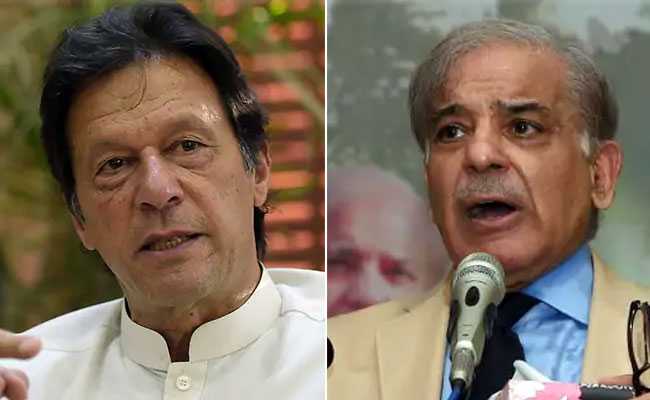
The sad plight of Pakistan
text_fieldsPakistani politics is once again drifting into uncertainty after a court sentenced former Prime Minister Imran Khan to three years imprisonment in a corruption case on which basis the Election Commission disqualified him from contesting elections for five years. The case against him was that he bought goods worth 140 million Pakistani rupees from the Toshakhana, which stores the gifts received by the heads of government, by giving false information. It was the Pakistan Muslim League-Nawaz (PML-N) government, which came to power after ousting Imran through a no-confidence motion, who filed the case last August. Two months later, on October 22, the Election Commission heard the complaint and found that although the sale could not be termed illegal as the gifts were paid for, the information and statements given on the matter were unethical and his membership in the National Assembly was frozen. Imran's Pakistan Tehreek-e-Insaf (PTI) took to the streets in protest - as in the past - in front of the Election Commission offices across the country, as soon as the Commission's verdict came. The Election Commission itself approached the court demanding that criminal charges be charged in the case of buying gifts from the government treasury. Imran was arrested when he appeared in court last May but on that occasion was released on bail soon. On July 4, the Islamabad High Court stayed the proceedings against Imran, and asked the Additional District Judge to review the maintainability of the case. After observing that the case will stand on July 9, the proceedings continued and the court pronounced the charge and sentence the other day. Sentenced to three years in prison, he was disqualified from political contest for the next five years. After the court verdict, Imran was arrested and put in jail. Imran's party has stated that it will approach the Supreme Court against the trial court verdict.
With the declaration of disqualification for five years, Imran will have to stay away from politics for a long time even after serving three years. It seems that the administration has almost succeeded in its aim to replace him in any way possible in the upcoming general elections in November. Every move by the Shehbaz Sharif government after Imran's ouster on April 10 last year through a no-confidence motion was aimed at weakening and undermining the charismatic leader, former cricketer Imran, and his party, the PTI, which has become one of Pakistan's most powerful parties. He already has 140 cases against him under various counts of corruption, terrorism and inciting violence. Imran, one of the world-class cricketers during his time, took another innings in politics being elected to the post of Prime Minister by taking prize wickets of strong opponents in the crease of politics. His fight against the corruption of the current administration brought him to power with popular support. The camp also had strong support from the army. Reforms during his reign made him more popular. Keeping Pakistan as the least vulnerable country to Covid in South Asia and trying to save the common people from starvation by even pledging the treasury were factors that boosted his popularity. However, his affinity to religious organizations and his anti-American postures created enemies both inside and outside. The army that had supported him turned against him. His opponents were successful in creating rifts within the party itself. That is how last April the 11-member opposition front with the indirect support of the army defeated him in a no trust motion and ousted him. However, it can be said that he was in a sense making the Parliament helpless by taking to the streets after that. His aim was to bring the country back to the polls by attacking the politicians and the military who had ousted him and by making turmoil in the street. Shehbaz Sharif's administration is carrying out a move to stifle him with the force of power. The same 'small justice' that had previously sent former Prime Minister Nawaz Sharif, Shehbaz and others to court and jail was applied against Imran. The charge against Nawaz was receiving salary illegally. Nawaz's daughter and Shehbaz were locked up by the National Accountability Bureau (NAB) - the Pakistani version of India's ED. Judiciary and NAB are the weapons of the authorities to lock up opponents. But even as those in power apply it against adversaries in turns, it is the people who pay the price. Whether Imran wins or loses a legal battle against those who have made his political future uncertain, it is a matter of his and his party's future. But even more pathetic is the plight of the country and the people of Pakistan, whose fate is made unpredictable by such political cold wars.

























